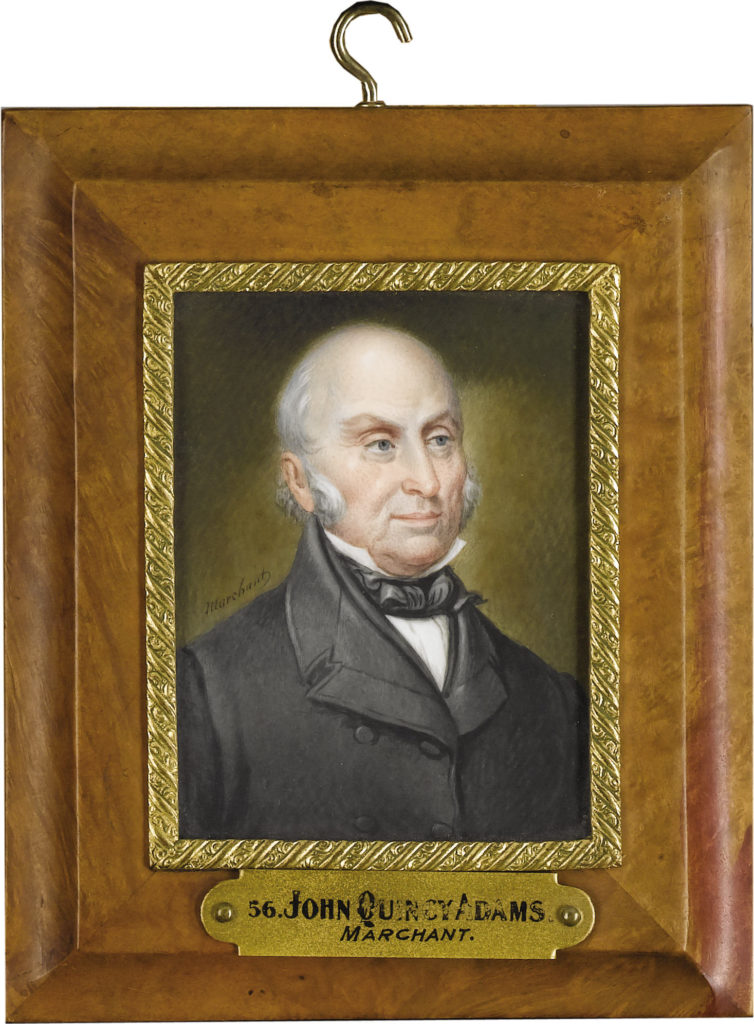
By Jim O’Neal
In the 1820s, the American people felt more independent than ever before. Although Europe’s monarchical systems had been reintroduced, democracy prevailed in the United States. The war had loosened most of the chains that had bound the ideology and economy to England.
War had also turned American businessmen from importing to domestic production. It helped limit foreign competition, and now manufacturing was a conspicuous special interest group, wielding power to seek government protection and special allowances. One acute need was for transportation and this put extra pressure on the government for roads and canals.
These circumstances helped to put Washington in the national focus. The spirit of nationalism was nearly universal and the challenge was to strengthen the country so that independence would be perpetual. Virtually all political factions were in agreement.
President James Monroe’s successor was John Quincy Adams, a member of the second generation of leadership, son of a Founding Father. However, many deep hatreds grew out of the election of 1824 and JQA could only hope they would be temporary. He shared Monroe’s belief that the party system would never return to plague the political system. His daily diary entries reveal much uncertainty, but he nevertheless believed it was possible to heal the divisions. He knew his duty was to foster nationalist goals and create institutions that would ensure a continuation of the “Era of Good Feelings.”
In reality, the majority probably did favor him at first, but he lost his hold very soon, failing in his policies and public performance. Despite being a talented diplomat, his manner was abrupt, stuffy and chilly, leading to deadly epithets by his enemies as “kingly” and “monarchical.” This reputation was exacerbated by his patrician wife, Louisa, who remains the only first lady born on foreign soil.
The result was a failed one-term presidency, just as his father experienced, and neither of their lives were particularly happy during their time as president. Without attending the inauguration of his successor, Andrew Jackson, he returned home for an expected retirement. However, politics was in Adams’ DNA and he was soon back in Washington in the House of Representatives, the only former president to do so. He had a remarkable career in the House that lasted 17 years.
On Nov. 20, 1846, he suffered a mild stroke, recovered and resumed his Congressional duties. On Feb. 21, 1848, in the middle of a heated debate, he had a massive cerebral hemorrhage and slumped over his desk. He was carried to a sofa in the Speaker’s Room, slipped into a coma and died two days later.
He was 80 years old.
 Intelligent Collector blogger JIM O’NEAL is an avid collector and history buff. He is President and CEO of Frito-Lay International [retired] and earlier served as Chairman and CEO of PepsiCo Restaurants International [KFC Pizza Hut and Taco Bell].
Intelligent Collector blogger JIM O’NEAL is an avid collector and history buff. He is President and CEO of Frito-Lay International [retired] and earlier served as Chairman and CEO of PepsiCo Restaurants International [KFC Pizza Hut and Taco Bell].
